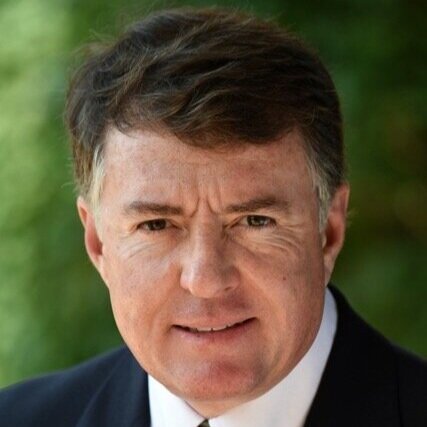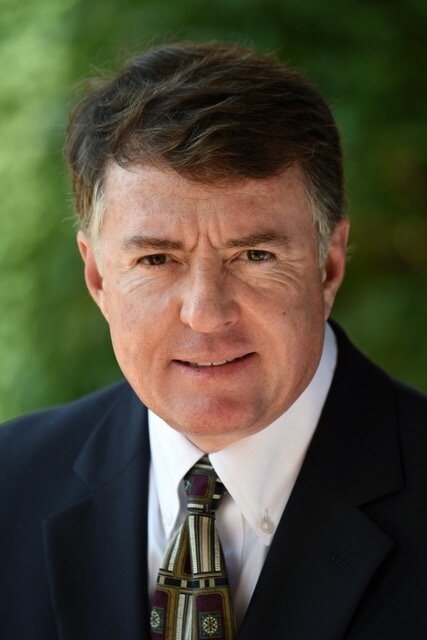I recently went one on one with Chuck Schnatter. Chuck helped grow Papa John’s to over 4,000 units and is currently leading franchise operations for Biscuit Belly. A lawyer by trade, Chuck served as general counsel at Papa John’s. Chuck has over twenty years of restaurant experience both as a corporate executive and as a franchise owner, owning 29 Papa John’s locations. More recently, Chuck started a coffee company which merged with another emerging concept and is now called Heine Brothers Coffee, which has over 19 stores. Chuck has also been on the Board of Directors of Skyline Chili for over 20 years.
Adam: Thanks again for taking the time to share your advice. First things first, though, I am sure readers would love to learn more about you. How did you get here? What experiences, failures, setbacks or challenges have been most instrumental to your growth?
Chuck: I always attribute a lot of my success to my maternal grandfather. He came from nothing and built a very successful law practice and also made some very astute business investments. He also taught me that working hard and staying focused on a project will pay off. Law school was another big challenge in my life. I was broke, so in addition to taking a full class load, I had to work 20-30 hours a week. However, I was lucky to clerk for some great attorneys, including my uncle, who were all very supportive and helped me get through the longest three years of my life. I was then fortunate to get hired after law school at Greenebaum Doll & McDonal (Now Dentons Bingham Greenbaum) a large firm in Louisville, and had some wonderful mentors, including Ed Perry, Ivan Diamond and Peggy Lyndrup. They worked me relentlessly but really taught me a lot about how to be a good lawyer. During my tenure there, I got to travel around the country working on acquisitions and public offerings and loved the three years I was at the firm. One of the greatest opportunities I have had has been my involvement in the growth of Papa John’s. My brother started it when I was still in undergraduate school, but during the summer and school breaks I would either work day shifts in Mick’s Lounge, the bar where John started the company, or in the evenings making and delivering pizzas. I joined Papa John’s as General Counsel in 1991 and spent the next 20 years on the ride of a lifetime. Being part of that kind of growth with an incredible group of talented and dedicated people was really a gift. Of course, we had a lot of challenges over the years, but the team always pulled through and kept moving forward.
Adam: In your experience, what are the key steps to growing and scaling your business?
Chuck: I know it is the standard cliché, but it always comes down to getting the right people on the team. It just seems to prove itself over and over again that when you have a group of people with a shared vision, that everyone buys into and is aligned with, success always follows. The other half of the equation is having a business model that is scalable and generates attractive results.
My primary investment focus is in restaurants, which is a tough business, but we are lucky in the U.S. because we have so many people that have experience, both as employees of franchisors and as franchisees. And, while the restaurant industry is very large, most of the bigger players know each other. When restaurant operators see an exciting new concept like Biscuit Belly, they want to get involved and they tell their friends in the industry about it. By leveraging the talent pools and capital that these groups have we can scale the concept pretty quickly.
Adam: How can one identify emerging brands that are poised for success in general and that can withstand the challenges of the current climate?
Chuck: I firmly believe that for any new company to be successful, regardless of the product or industry, it has to have a passionate, dedicated founder(s). Sure, you have to have a better product or service, but having that person who spends 24/7 thinking about it is crucial. To stand out in today’s market, a brand has to offer 1) a unique product or service combined with a great experience, 2) something that provides a valuable new service, or solves a problem for customers even if they didn’t know they wanted it or needed it, or 3) it has to be a dramatic improvement of an existing product or service.
Adam: What are your pieces of advice for franchisors and for franchisees?
Chuck: My biggest issue with the franchisor/franchisee model is the concept that the franchisee is just “buying” a franchise, like buying a car or a computer. That is a purely transactional view that I believe is detrimental to both parties. A franchise is a long term, contractual relationship that goes both ways, and like any relationship it requires that both sides be dedicated to mutual success with a clear understanding of their respective responsibilities.
Adam: What do you believe are the defining qualities of an effective leader?
Chuck: Leadership is about finding the right people – those that fit within the organization, believe in its mission and values and are self-starters. Once you get the right team in place, the leaders job is to constantly keep everyone focused on the 2-4 key drivers of the business, make sure they have the resources they need to get the job done and, perhaps most importantly, know when to get out of the way. The other key role of a leader is to always be looking ahead for new opportunities and new threats. The hard part is knowing which opportunities both are something the organization can be great at doing and are viable for the long term. A lot of companies spend too much time and resources chasing the next “shiny object” or hot trend. But to be successful at a new product or service, it comes down to three questions:
1) is the new product/service something customers would trust us to deliver;
2) is it something we can execute on every day at a high level; and
3) does it drive long-term, sustainable profitability.
Adam: How can leaders and aspiring leaders take their leadership skills to the next level?
Chuck: We all tend to get stuck in our bubbles or silos, looking at our business the same way, doing the same things year after year, too often accepting “just good enough” because its easier than changing. To grow as a leader, I believe you have to take the time to research other businesses and industries; meet with anyone who you believe has skills or experience that might help you and ask lots of questions; don’t be afraid to take chances and make mistakes; recognize that no matter what level you’re at or how much money you are making in your current position, sometimes the best option is to move to a different job, a different company or a different industry.
As leaders, we need to get out of our comfort zones on a regular basis. If you’re not feeling uncomfortable at least 2-3 times a year, you’re probably not growing as a leader.
Adam: What are your three best tips applicable to entrepreneurs, executives and civic leaders?
Chuck:
Be humble – we are all making this up as we go along.
Change is good, and inevitable, so embrace it.
Success is a series of wins, not a destination. Stop thinking about getting to some fictional end result and just focus on what needs to be done today, next month, next year and in the next decade.
Adam: What is your best advice on building, leading and managing teams?
Chuck: If would refer mostly to my earlier answer on the qualities of an effective leader, with one comment. I am not a big fan of the term “management.” If you have the right people in the right positions, you should never have to manage them. They may need additional training or education to move forward, they may need an occasional pep talk or some time off, but I don’t consider these items as managing the person. If you have to manage someone to get their job done, you probably have the wrong person, or at least a person in the wrong position.
Adam: What are your best tips on the topics of sales, marketing and branding?
Chuck: Marketing is not my strong suit, especially given the huge shifts in how people are now getting ads and information. My best tip there would be to find a solid marketing firm that is on top of all the different modes of marketing, both what’s currently getting traction and what’s on the horizon. With regard to branding, a couple of things have become clear: a) people want to do business with companies they see as trustworthy and that value them and their business, and b) with social media, it is so easy, probably too easy, for a very few people to have a huge impact in how a brand is perceived. The combination of these two things make it crucial for a company to stay as close to its customers as possible, to not be afraid to promote the positives of your brand and to actively counter false narratives.
Adam: What is the single best piece of advice you have ever received?
Chuck: Our grandfather always told us that “If you learn how to work, you’ll never be poor.” Over time I came to realize that this wasn’t about just earning a paycheck, it was about really committing yourself to doing a job in a way that you could be proud of.
One quote that I am came across about a year ago that I keep coming back to during this pandemic is from a writer named Haruki Murakami. “When you come out of the storm, you won’t be the same person that went in. That’s what this storm is all about.”
Hopefully, we will all be better people on the other side of this COVID/economic storm.
Adam: Is there anything else you would like to share?
Chuck: Just that I am really excited about scaling up our new concept, Biscuit Belly. We’ve created a great tasting menu with a unique service model that we believe can generate very attractive returns. Hopefully, my 30+ years in business will allow us to grow quickly, but to also avoid some of the potholes along the road.









